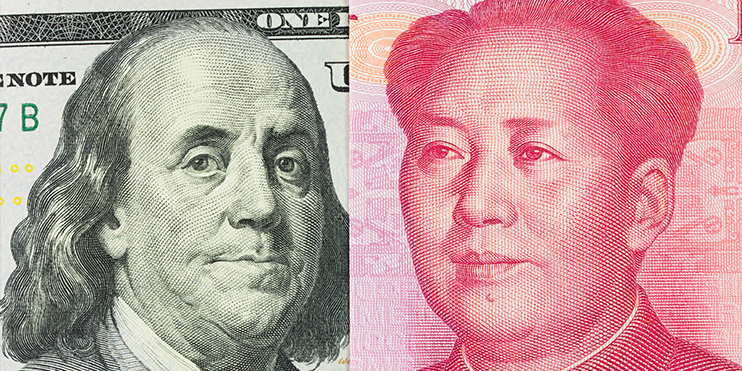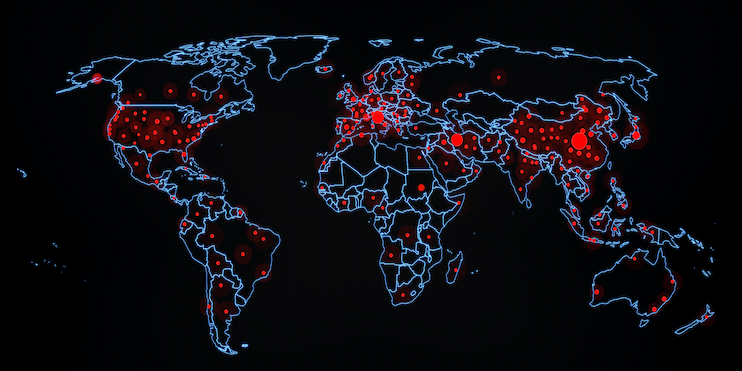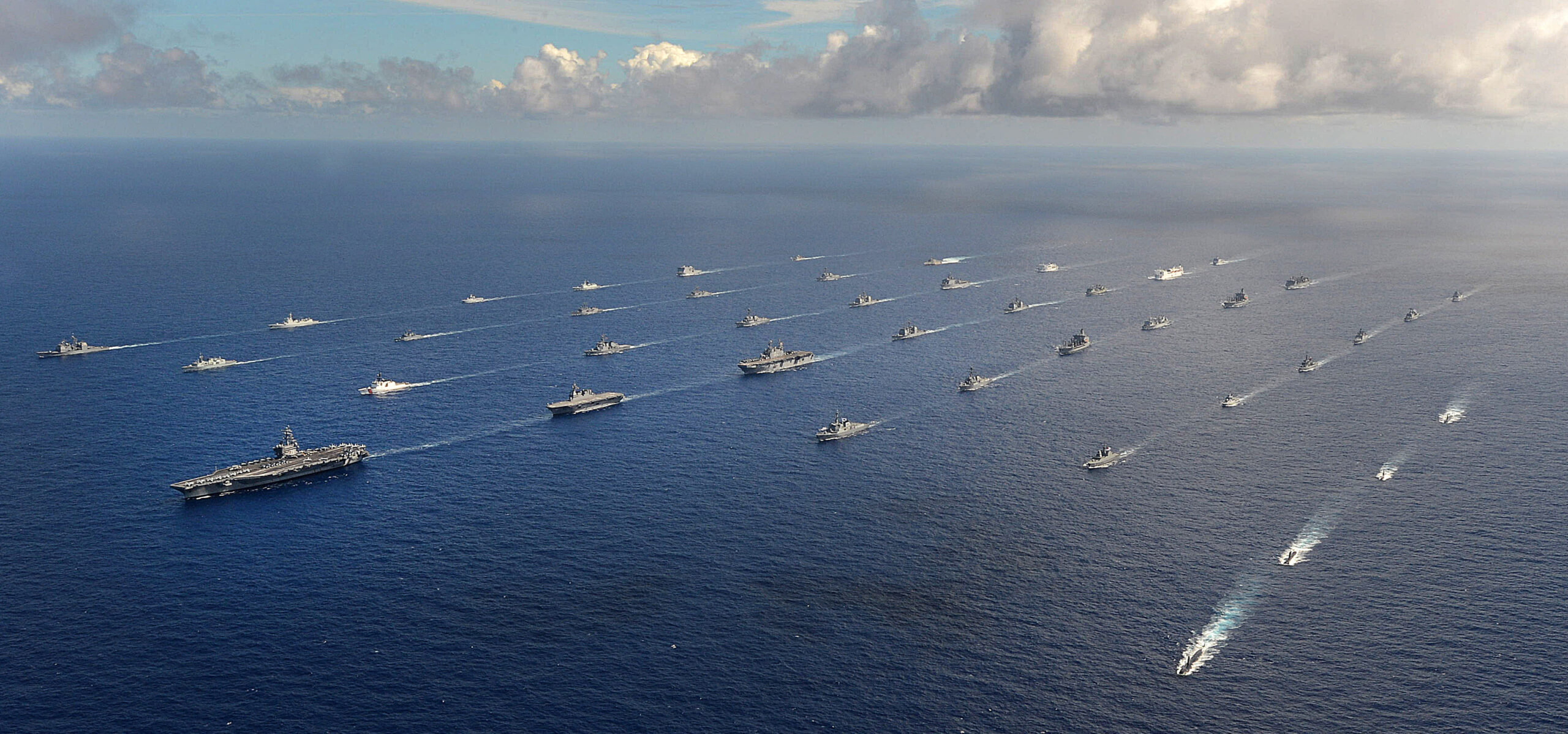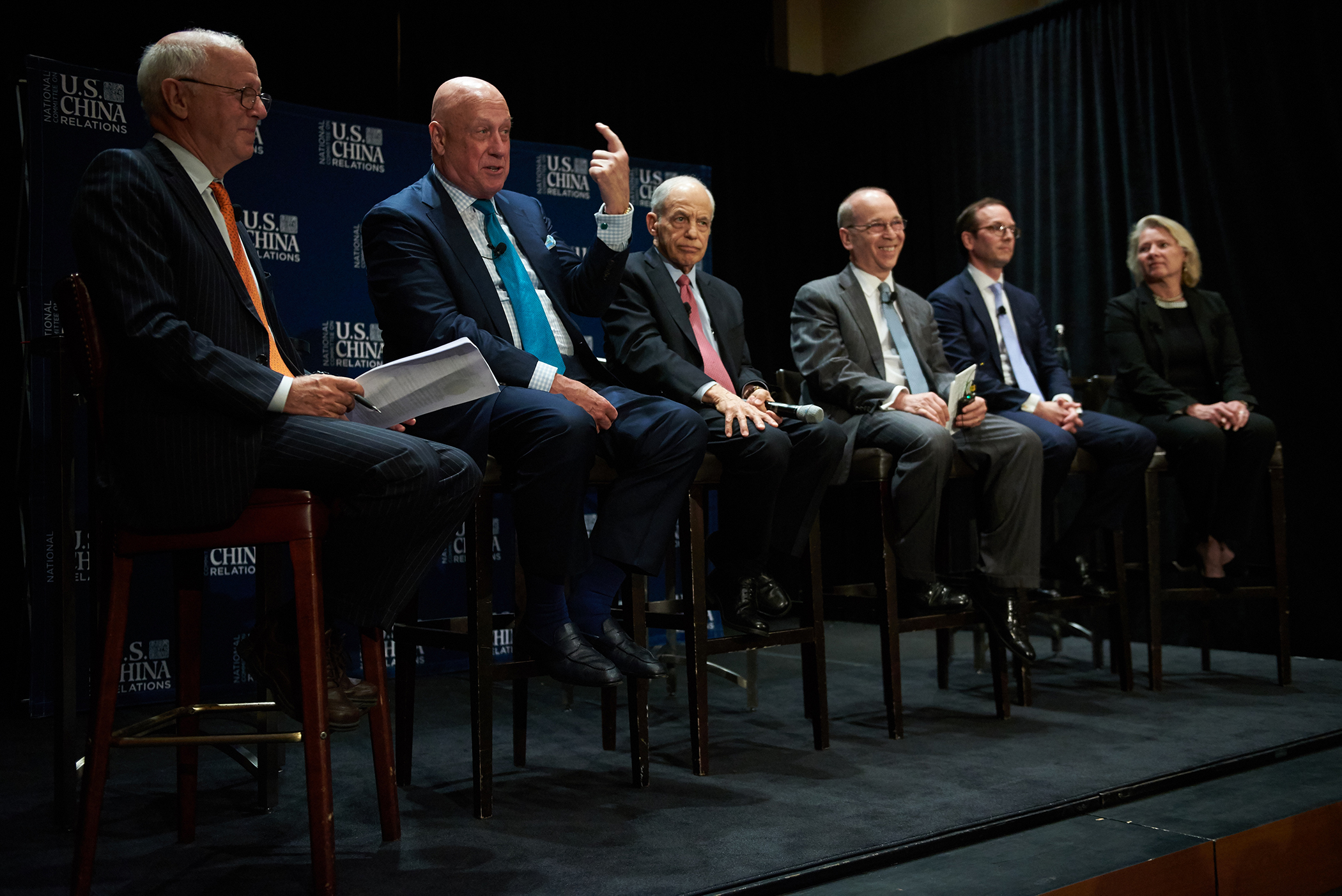As the COVID-19 pandemic presents unprecedented challenges to every level of the global economy, the National Committee on U.S.-China Relations brought together leading American and Chinese experts on economics and trade to share analysis and projections on the issues.
Ambassador Robert Zoellick offered reflections on his “responsible stakeholder” speech at the National Committee’s 2005 Gala dinner and the policy implications of his approach for the United States when considering the current Sino-U.S. relationship.
Experts presented new data and analysis on two-way U.S.-China investment flows at a time of deteriorating bilateral relationship, growing regulatory scrutiny, and COVID-19.
As the COVID-19 pandemic presents unprecedented challenges to every level of the global economy, the National Committee on U.S.-China Relations brought together leading American and Chinese experts on economics and trade to share analysis and projections on the issues.
Anja Manuel and Paul Triolo discussed the policies that contributed to China's technological rise, the geopolitical implications of this rise, how U.S. firms should approach this new order, and how recent developments, such as the Phase I trade agreement and COVID-19 pandemic, have affected technological collaboration.
Admiral Dennis Blair discussed the rise of China's technological capabilities, the strategic challenges inherent to this rise, and how the United States might best approach regulation while encouraging collaboration.
The National Committee hosted a virtual program moderated by Joan Kaufman with two leading medical experts: Margaret Hamburg and Winnie Yip, as they discussed the potential for collaboration between the United States and China on global health strategies.
In its fight against the coronavirus, should the United States consider China an enemy or a partner? Graham Allison discussed prospects for cooperation in the fight against the coronavirus.
How should we think about the U.S.-China military and security relationship? The commander of the U.S. Indo-Pacific Command, Admiral Philip S. Davidson, presents his views.
A discussion focusing on how the United States and China have moved from strategic cooperation to strategic competition, and what can be done to help ease bilateral tensions.









